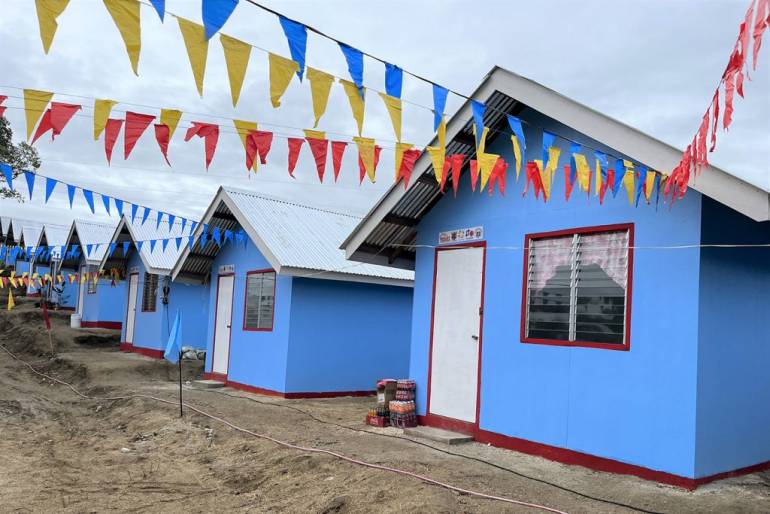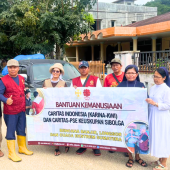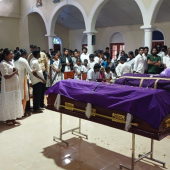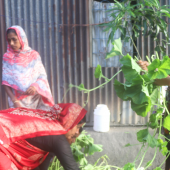Cebu Caritas gives new houses to ‘Odette’ Victims in the Philippines

Caritas Cebu, on Tuesday, February 14, handed over housing units to the persons displaced by the December 2021 Typhoon "Odette" in Boljoon.
Auxiliary Bishop Ruben Labajo of Cebu attended the simple ceremony to hand over 100 "core progressive shelters" to Kalumboyan village beneficiaries.
“On Valentine's Day, you received more than flowers or roses; you received a home and a community,” Bishop Labajo said during Mass.
“These shelters are tangible examples of God's goodness and love,” he said.
The project also included the construction and handover of 35 “on-site core transitional shelters” to beneficiaries from five mountain villages, Nangka, San Antonio, Upper Becerril, Lunop and Lower Becerril.
Father Antonio Labiao, Caritas Philippines and Father Alex Cola, Jr., of Cebu Caritas attended the event.
“Not only do we see houses here, but we hope to see a chapel and a resilient community as well,” said Father Antonio Labiao.
Caritas Philippines, Caritas International, and the local government collaborated on the housing project.
Typhoon Rai (locally Odette) hit the provinces of Surigao del Norte and Dinagat Islands in Mindanao, five provinces of Visayas, and Palawan in Luzon on 16 December 2021 with torrential rains, violent winds, landslides, and storm surges before exiting the Philippine area of responsibility on December 17.
According to the Disaster Response Operation Monitoring and Information Center (DROMIC), the estimated total affected population in Southern Leyte and Caraga Region is 513,000 families (1,947,000 individuals).
Although most of the displaced persons have returned, there are still about 9,800 households (about 40,300 individuals) staying either in evacuation centers or in the homes of relatives. Most of them are those whose houses were totally damaged. - Anbu Selvam
Radio Veritas Asia (RVA), a media platform of the Catholic Church, aims to share Christ. RVA started in 1969 as a continental Catholic radio station to serve Asian countries in their respective local language, thus earning the tag “the Voice of Asian Christianity.” Responding to the emerging context, RVA embraced media platforms to connect with the global Asian audience via its 21 language websites and various social media platforms.
















- Reply
Permalink